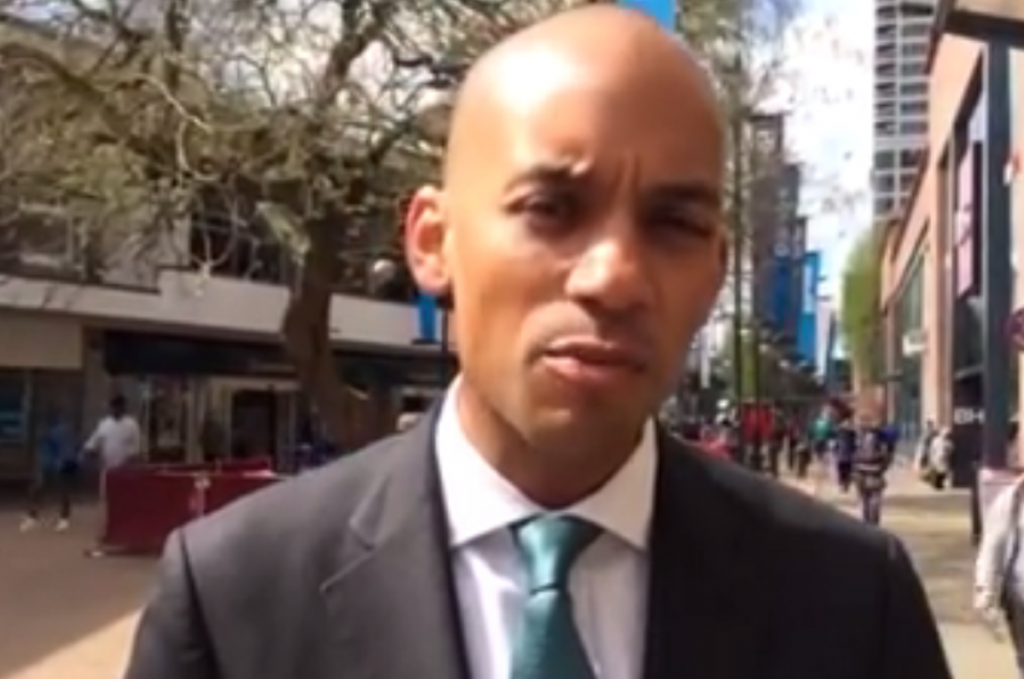Umunna stands for Labour leadership – but is there content behind the surface?
A few days after making it clear he was standing for the Labour leadership, Chuka Umunna has finally confirmed it in a Facebook video in Swindon.
North, South, East, West – Labour can and must win in 2020. – C
Posted by Chuka Umunna on Tuesday, May 12, 2015
The manner Umunna has behaved since the defeat reinforces some of the reasons people feel wary of him. He began by writing a piece in the Observer about why Labour failed. Given the content and the timing, it was obvious he was on leadership manoeuvres. He followed it up with an Andrew Marr interview in which he refused to confirm that he was standing. It was quite bizarre. Any reasonable observer could see that was precisely what he was doing, so refusing to confirm it looked slippery and disingenuous.
Today, when he finally did confirm his leadership bid, he said he needed to talk to 'stakeholders' in the Labour party first. It's not a good look: the evasive tactics, the actions which require decoding by political journalists to find their meaning, the use of managerial terms like 'stakeholder' – this all reflects the problems Labour had in the past, where professional middle-class politicians conducted themselves in a way which alienated the party's supporters. The use of Facebook to announce the bid is also a bit depressing, given how out of kilter social media was with the reality of the election result.
It's also worth mentioning that Umunna's Observer article, which was thoroughly Blairite, really only focused on one of the three components of Labour's defeat: suburban English voters. It did not address how to win back supporters in its industrial heartland who fled to Ukip or those in Scotland who switched to the SNP. So there are presentational and content-based concerns about the Streatham MP.
And yet Umunna has some very impressive qualities. Critics say he comes across as too stylish and metropolitan for voters outside London, but that is not borne out by the evidence. Survation polling from last year (yep, we know – treat it with as much caution as you think sensible) showed he performed very well indeed with potential voters.
He is also commendably passionate on immigration. He is one of the few politicians who was willing to take on Farage robustly, including in one Question Time exchange in which it was clear he was personally affronted by the Ukip leader's racially-tinged rhetoric. He has a good record on immigration and you don't get the sense he's likely to emulate Ukip on it in a bid to bandage the flow of white working class voters to the party.
Umunna is considered Blairite but has good contacts in the Compass left-tinged section of the party. He could potentially move it on from the squalid and unhelpful Brownite-Blairite battles of the past, which it seems set on repeating.
And then there is the matter of his race, which has not really been touched on. It would be a hugely positive development for a black man to lead a mainstream British political party. Britain doesn't have the same problems with race that America does, so it is not exactly a Barack Obama-level of political significance, but it still matters. It would speak to the changing demographic landscape of the country – a landscape which, despite last week's result, still favours Labour in the long-term.
Should a party leader ever be chosen on the basis of their race, gender or sexuality? Absolutely not. But if Umunna became leader, it would undeniably be a welcome development for reasons unconnected to party politics.
It's still very early days. But for the time being – and despite the many reasons there are to be wary of him – Umunna is currently the one to beat.





-01.png)